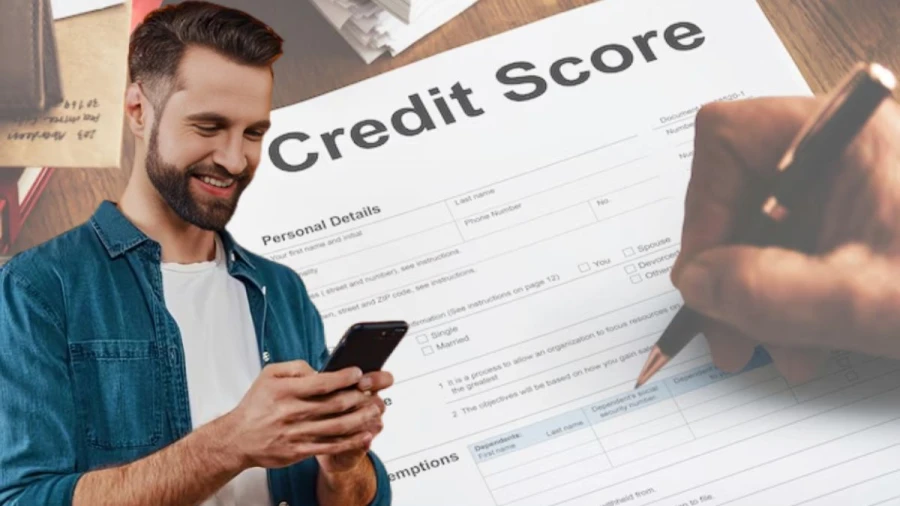
How to Check Credit Score in the Philippines? Factors Affecting Credit Scores
Learn how to check your credit score in the Philippines easily with step-by-step instructions given here and know the factors affecting these scores.
by P Nandhini
Published Apr 12, 2024 | Updated Apr 12, 2024 | 📖 5 min read
What is a Credit Score?
A credit score is like a grade for how great you are at borrowing and returning money. It's a number that tells banks and other lenders how likely you are to pay back any cash you borrow. In the Philippines, credit scores extend from 300 to 850. The higher your score, the superior you are.
If your score is high, then you're great at managing your cash and paying bills on time. But if it's low, then it could be harder for you to borrow money, and even if you do, you have to pay more in interest. Think of your credit score as a report card for your money habits.
It's based on things like whether you pay your bills on time, how much debt you have, and how long you've been borrowing cash. Banks will look at your credit score if they need to give you a loan or provide a credit card. So, having a good credit score will help you get loans with low-interest rates and make it easy to purchase things like a car or a house.
How to Check Credit Score in the Philippines?
Download the CIBIApp: If you're using a mobile phone, go to the Google Play Store or the App Store and look for "CIBIApp." Download and install the app on your phone.
Create an Account: Once the app is installed, open it and create a new account. You'll be required to select a unique username and password that you'll use to log in each time you need to check your credit score.
Provide Personal Information: Fill in your personal details such as your name, address, and other required data inside the app.
Upload Identification Documents: Take clear photographs of your primary identification documents, like your driving license or passport, and upload them through the app. Make sure the documents are valid and easy to read.
Schedule a Video Call: Use the app to plan a video call arrangement for identity verification. Select a time that works for you and wait for confirmation from CIBI through email.
Verify Identity: On the scheduled day, make sure you have the same identification documents you shared earlier. Start the video call through the app at the appointed time. During the call, they'll verify your identity by matching your face with the ID proofs you provided.
Make Payment: After identity verification, proceed to make the payment for accessing your credit report. The fee is PHP 235, inclusive of VAT.
Receive Credit Report: Once your payment is confirmed, CIBI will send you an email containing your complete credit report. Review the data to make sure it is accurate.
Report Discrepancies (if any): If you discover any mistakes or errors in your credit report, you can report them through the CIBI website's Online Dispute Resolution Process (ODRP). There's no charge for reporting errors, and it's basic to correct any errors to maintain accurate credit information.
What Are The Factors Affecting Credit Scores?
- Paying your bills on time is one of the important factors. If you consistently pay your bills when they are due, it shows that you're responsible for your money.
- Another factor is how much of your available credit you use. Using too much of your credit limit can reduce your score, so it's important to keep your balances low.
- The length of time you've had credit accounts also matters. Loan lenders like to see a long history of responsible borrowing.
- Having a blend of different types of credit, like credit cards and loans, can be great for your score. It shows that you can manage various kinds of debt responsibly.
- Every time you apply for new credit, it will lower your score a little bit. Lenders see different credit applications as a sign that you might be in financial trouble.
- Negative open records like bankruptcies or liens can have a huge effect on your credit score. It's important to maintain a strategic distance from these if you can.
- The amount of debt you owe compared to your salary can affect your score. Loan lenders want to see that to check if you can manage your debt without getting overwhelmed.
What Do Traditional Credit Reports Contain?
Traditional credit reports contain important information about your financial history. They usually include details such as your full name, Social Security number, current and previous addresses, and any businesses you have.
These reports also list your credit accounts, such as credit cards, loans, and mortgages, along with the payment history. It shows if you've paid your bills on time or if you've missed any payments.
Additionally, traditional credit reports may include data about any accounts that have gone to collections, liquidations, or other negative monetary occasions. It's important to keep an eye on your credit report often to make sure all the data is correct. If you discover any mistakes, you can report them to have them rectified.




